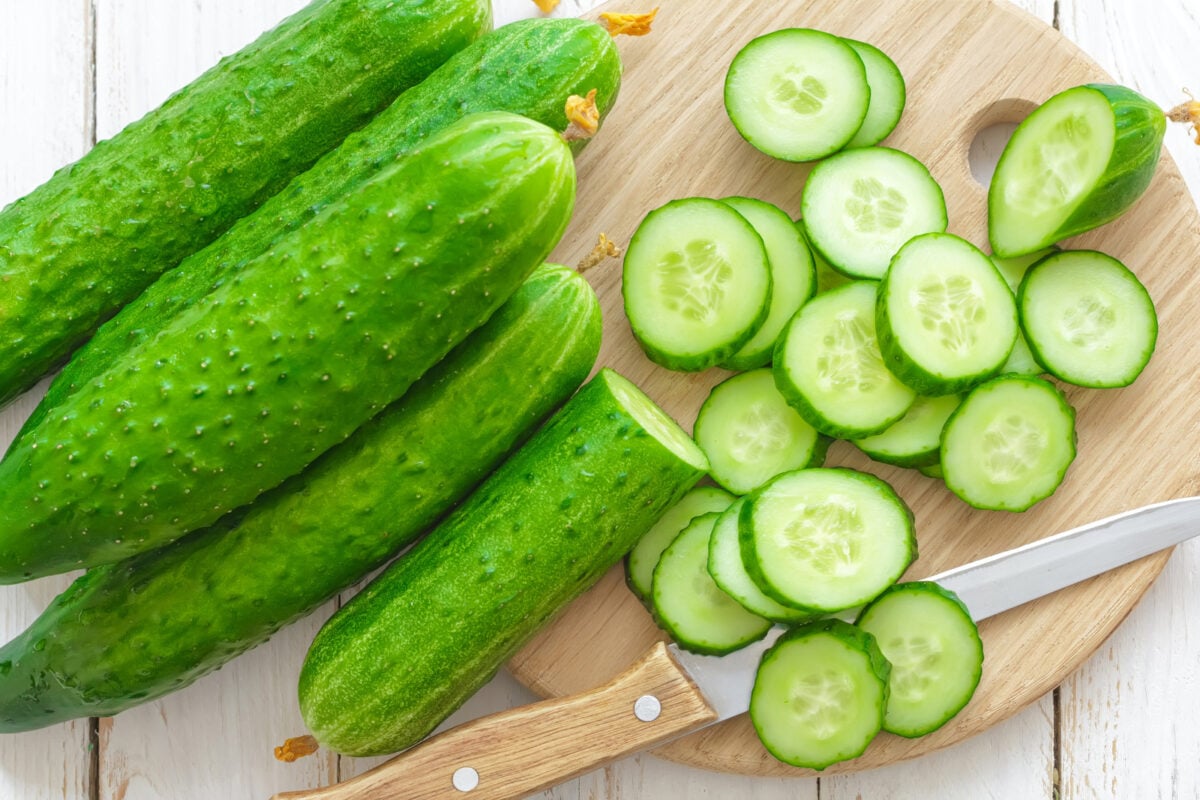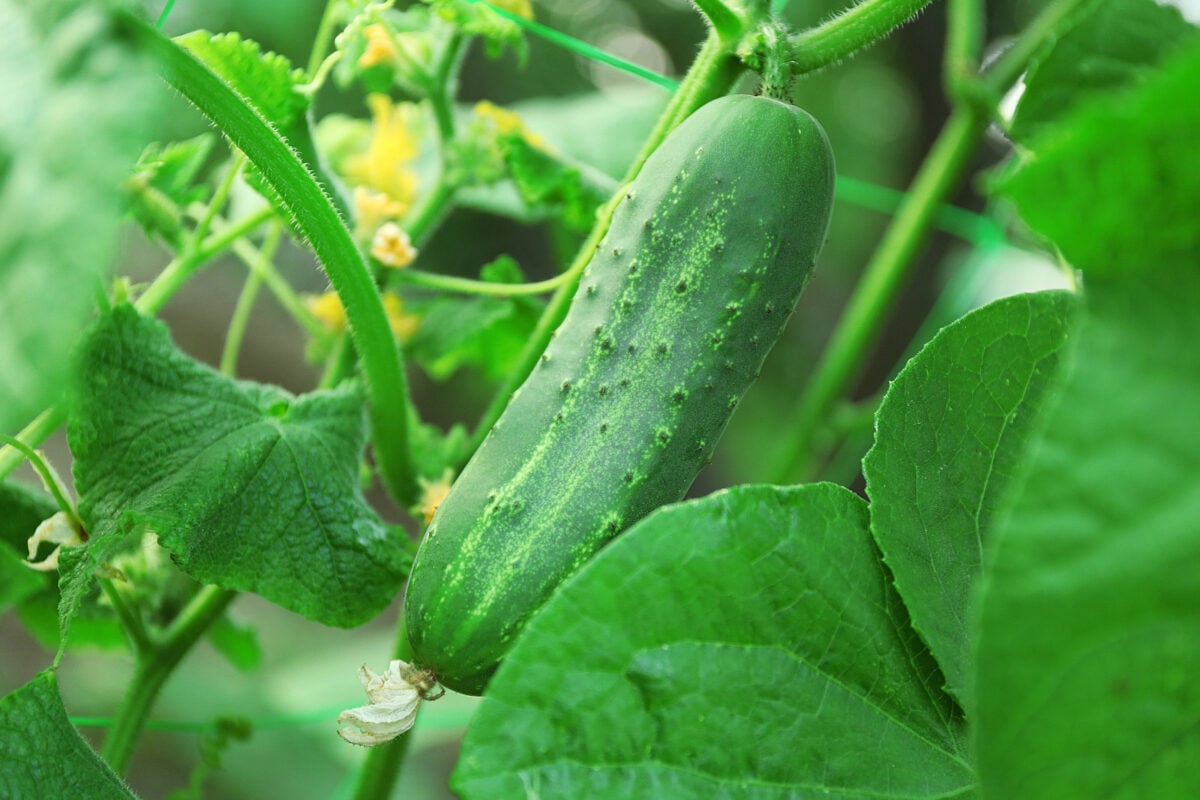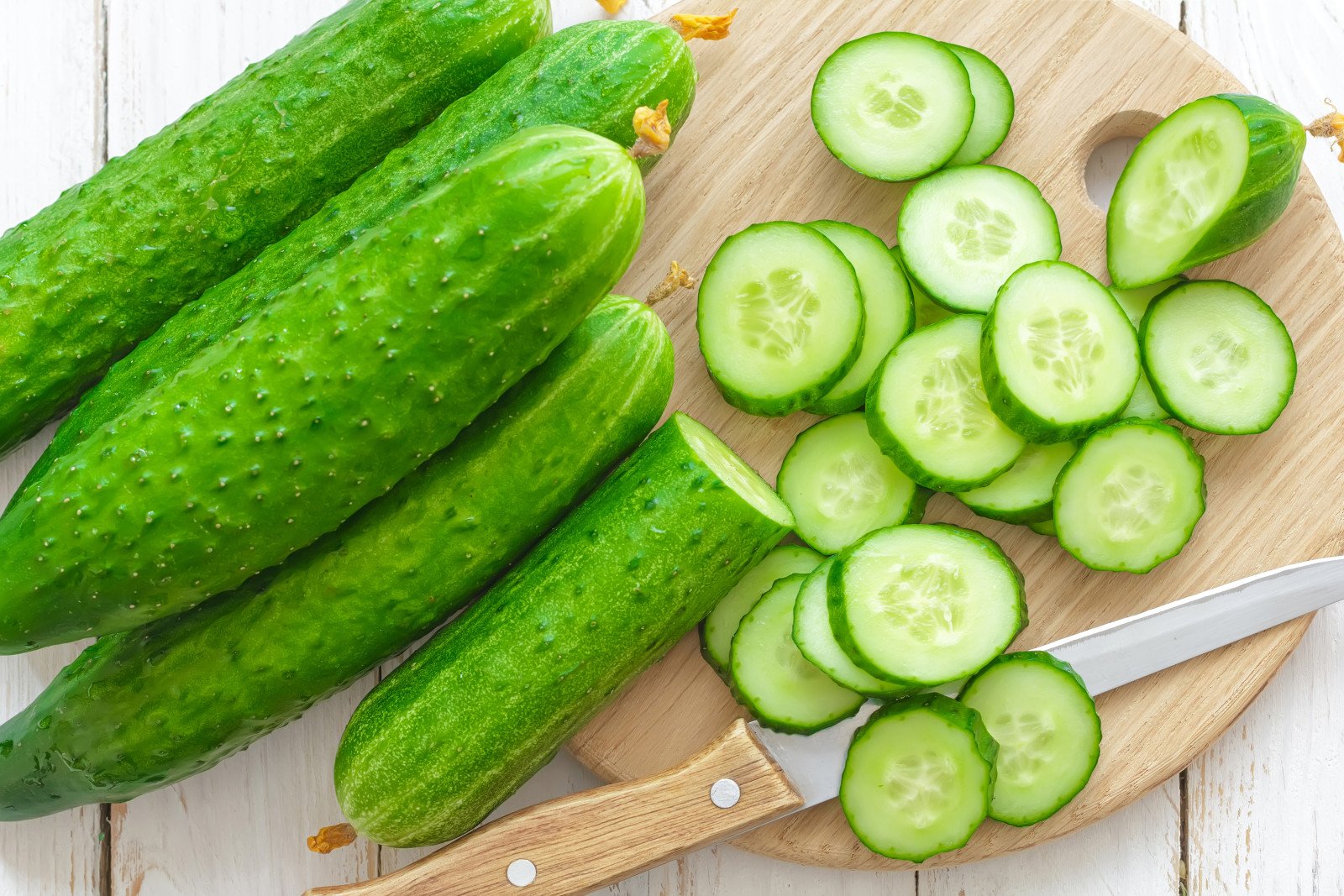Cucumbers are technically fruits, though they are most commonly used as a vegetable for culinary purposes. Low in calories and rich in water, cucumbers are known for being a crunchy, refreshing, and hydrating addition to many dishes, from garnishing salads to flavoring water (1).

Cucumbers are also considered vegetables from a nutritional standpoint. They have numerous health benefits due to their antioxidant content, including a potential impact on blood sugar and cholesterol levels. They also have topical uses, such as minimizing sunburn pain and reducing undereye swelling (1).
Learn more about the botanical, culinary, and nutritional characteristics of cucumbers below!
Scientific Definition of a Fruit and a Vegetable
There is confusion over the classification of many fruits and vegetables because each can be defined in two different ways–by their botanical category and their culinary use. The botanical or scientific definition is how plant researchers and botanists classify the produce, while the culinary definition represents how it’s used in cooking (2).
For example, a tomato is a fruit from a botanical standpoint but is used as a vegetable in the culinary world. You wouldn’t put tomato in a fruit salad! Other examples of botanical fruits include bell peppers, eggplant, and cucumbers (2).
Fruits come from the flowering part of a plant as a result of pollination. Animals eat the fruit and its seeds, then spread the seeds to other areas to help the plant reproduce (2). Therefore, produce that grows from a flower and contains seeds are fruits.
On the other hand, vegetables come from non-flowering parts of the plant and aren’t involved in plant reproduction. Instead, vegetables are from different parts of the plant body, like roots (carrots and potatoes), bulbs (onions), or the entire body of the plant (lettuce and celery) (2).

Botanical Characteristics
From a botanical perspective, cucumbers are classified as fruits because they grow from flowers and contain seeds. Cucumber plants have yellow flowers that make way for the cylindrical, green cucumber fruit to grow full of small, cream-colored seeds (1).
Cucumbers are part of the Curcurbitaceae family (or gourd family), which also includes melon, squash, and pumpkins. There are many varieties of cucumbers, but the most common one you’d find in the grocery store is Cucumis sativus (1).
The cucumber fruit and its seeds have been used for medicinal purposes throughout history since ancient times. Cucumbers also have a cooling effect that makes them helpful for reducing skin swelling and treating sunburn when applied topically (1).
Cucumbers are still used topically today– you may be familiar with spas providing cucumber slices to help minimize undereye swelling or cucumber-based face masks to cool and calm irritated skin.

Culinary Characteristics
Most people (who aren’t botanists) would identify cucumbers as vegetables, which is the culinary definition of this botanical fruit.
Cucumbers are not sweet and are often used in savory dishes like other vegetables. They would not typically be included in fruit salads, desserts, and sweet dishes like other fruits would.
Though cucumbers are usually enjoyed raw for their crisp and refreshing qualities, some cultures also include cooked cucumbers in dishes like stir-fries.
Common culinary uses of cucumbers include:
- Salads
- Pickles
- In sandwiches
- Cucumber water
- With dips
- Stir-fries
- Juices or smoothies
Nutrition
Cucumbers are more nutritionally similar to vegetables than fruits, with their low calorie and sugar content. Therefore, cucumbers are classified as vegetables from a nutritional standpoint as well as a culinary perspective.
One whole cucumber (eight inches long) contains (3):
- 45 calories.
- 2 g protein.
- 0.3 g fat.
- 11 g carbohydrates.
- 1.5 g fiber.
- 5 g sugar.
Nutrition experts recommend adults eat between two and four cups of vegetables per day, and cucumbers count towards this daily goal (4). Adding cucumber slices to a side salad or enjoying cucumber spears with hummus for a snack are easy ways to boost your veggie intake.
Health Benefits
Cucumbers are rich in antioxidants and beneficial plant compounds called phytochemicals, which have anti-inflammatory properties (1).
Though more research is needed, some studies have linked the phytochemicals in cucumbers with health benefits such as lowering blood sugar and cholesterol levels and reducing the risk of cancer (1).
Cucumbers are naturally rich in potassium and low in sodium. Research shows that a high-potassium, low-sodium diet may help lower high blood pressure levels in people with hypertension (3, 5).
The water content of cucumbers makes them a hydrating food, and they also work well for adding flavor to infused water.
Remember that although cucumbers are technically fruits, they are considered vegetables from both a culinary and a nutritional standpoint. Cucumbers are an easy, refreshing way to meet your daily vegetable goal, and they have numerous health benefits.






